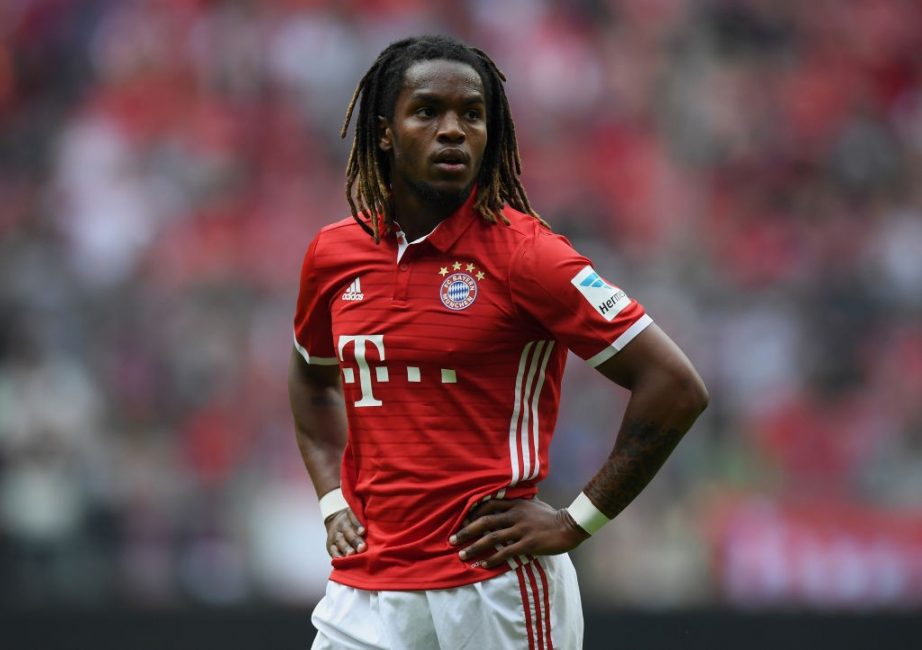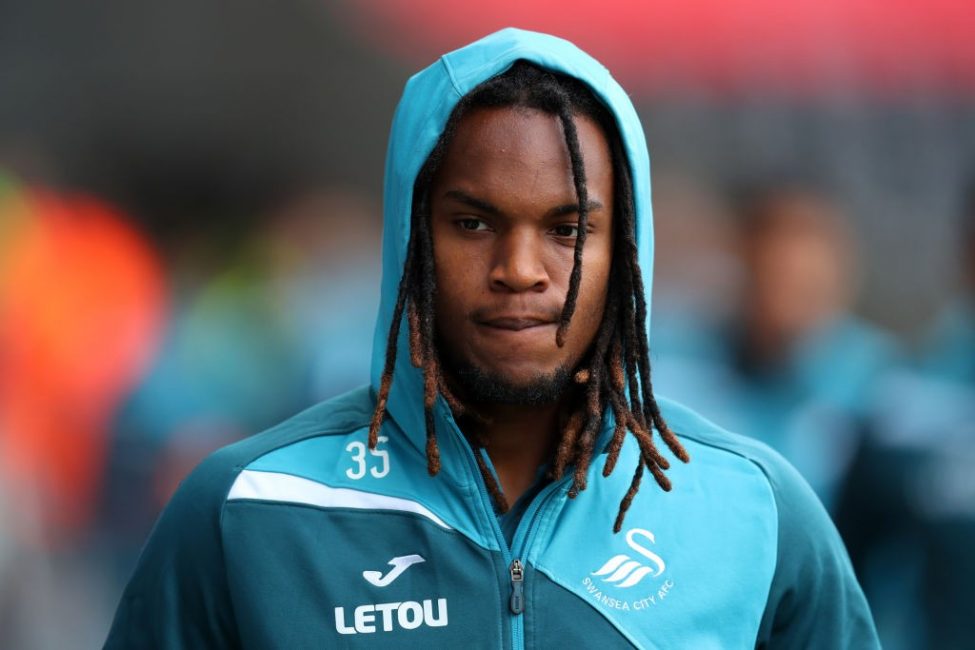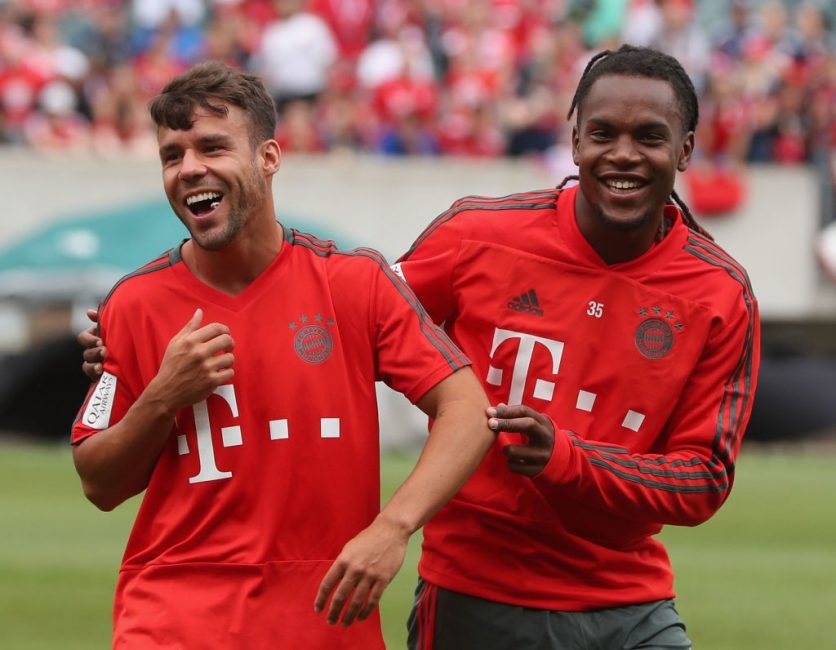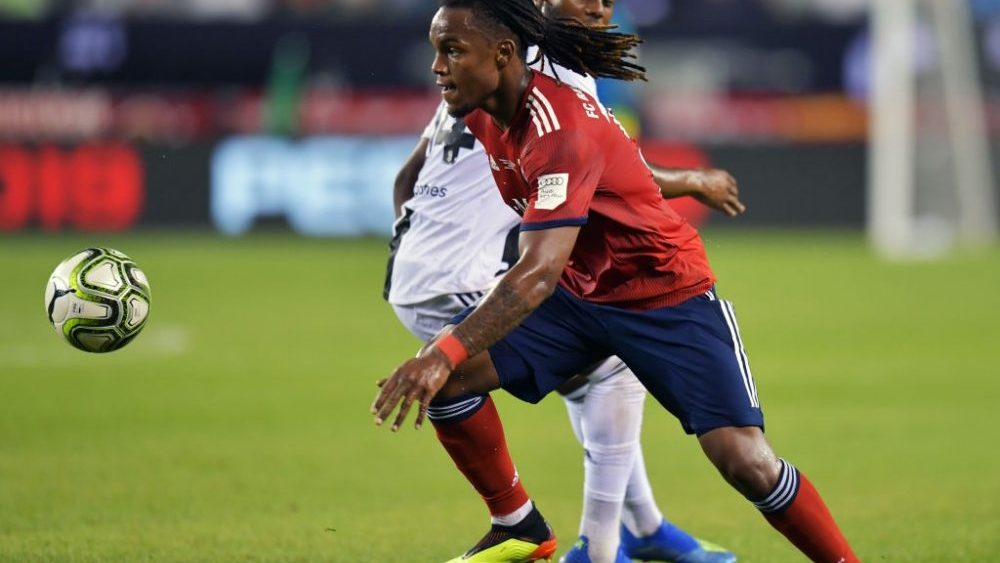Will Renato Sanches manage to break through this season?
The young Portuguese seems more liberated, alert and involved, constantly demanding the ball. Hope grows that the supposed flop goes on to develop into the player that Bayern hoped to have signed in 2016.
New coach Niko Kovac also had praise for Renato Sanches recently. Regarding the 20-year-old, Kovac said: “He came into training with a lot of motivation. I see that daily. He’s really giving it his all.”
What’s changed? And what can be expected of him after his difficult intermezzo at Swansea City?
The wonderkid
At just 18 Sanches debuted for Benfica, and in his first season as a professional he put in strong performances. He also impressed the decision makers at Bayern in his appearances against the Bavarian side in the Champions League quarter finals.
Even before his strong European Championships with the Portuguese side, his transfer to Bayern was announced. €35 million took Sanches, then 18, to Munich. The fee could still rise to €80 million, should Renato Sanches pick up the Ballon D’or at some point. Expectations, then, were huge, and the hype only grew after the Euros, after Sanches managed to win the award for best youngster.
At the time, Steffen described Sanches in his scout report for Miasanrot as a player who’s industrious, quick off the mark, dynamic and always ready to make something happen with the ball or to go after an opponent.
A year of disappointments
It wasn’t just Renato Sanches coming to Munich in 2016 – it was also the beginning of Carlo Ancelotti’s time at FC Bayern. As such, Sanches arrived probably at the most inopportune time from his perspective. The clearly-formulated goal of Carlo’s time in charge was to win the Champions League. Ancelotti, already known for preferring more experienced players, did little for the development of Sanches. The Italian was rarely ready to experiment and after Sanches put in several weak performances, partly owing to an injury in the first half of 2016/17, he got fewer and fewer chances.

(Image: Matthias Hangst/Bongarts/Getty Images)
Under Carlo Ancelotti, Bayern played in a system that relied more on the individual quality of the players instead of setting clear guidelines. The young Portuguese suffered from being one of few players who had never played in a system shaped by positional play. Sanches clearly had problems with his positioning. He often dwelt in the cover shadows of defenders or offered himself at the wrong time. Against the compact and physical defences in the Bundesliga, he was rarely able to show his quality.
In his first year, Sanches rarely shone and stuck out frequently because of bad decisions on the ball and lacking game intelligence off it. On top of that, he didn’t get enough match practice. Ancelotti preferred the experienced players like Alonso, Vidal or also Thiago. As a result, a loan was floated in summer 2017. An old companion managed to bring Renato Sanches to Swansea City.
Spiralling further downwards
That old companion was Paul Clement, who was still Carlo Ancelotti’s right-hand man at FC Bayern. Clement was convinced of Sanches’ qualities and insisted on the signing of Sanches to strengthen his team further. Renato Sanches was already just a shadow of himself then, though. Too much pressure was a burden on the young player, under which he threatened to collapse.
„When he came, he was far more damaged than I thought. It was really sad. He was a boy who had almost got the weight of the world on his shoulders. In training, when that pressure is not there, he was the best player. He could do things no one else could do. He’s got power, can go past people, got a shot on him. But then in games, I looked at the choices he was making, shooting from 45 yards on the angle, and he kept making those mistakes“, said Paul Clement at the time.
Huge hopes were placed on Sanches at Swansea, but the pressure on him, occasional injuries and the continuing problems with decision making saw Sanches eventually named by Swansea fans as flop of the season.

“I’m not being funny, he’s been woeful. You’re expecting more from him,” said the former Wales international Robbie Savage.
At Swansea it seemed as if Sanches wanted to prove to the whole world that he was still the wonderkid that debuted at Benfica at 18. However, he mostly played under Clement in a deeper position where you need composure, you need to dictate a game, take on responsibility and give your team a certain balance. Sanches, meanwhile, tried to force something special by attempting difficult passes and dribbles, trying to produce the magic that everyone expected of him.
“He had a desire to please and a desire to prove everybody wrong. He got in a vicious cycle of poor choices. The other players were saying, ‘He’s playing like that and you’re not picking me,’ so it became difficult to pick him.” – Paul Clement on Sanches’ development during his time at Swansea.
Fresh start with Kovac
Now Renato Sanches is back in Munich again. Most fans speculated as to whether he might still leave the club in this transfer window, but Niko Kovac seems to have sparked the Portuguese into life. While the World Cup players were still on holiday, Sanches was giving it his all.
So far he’s shown good form, given everything in training and has also been impressive in his appearances in friendlies so far. He stood out against PSG in particularly and crowned his good performance with a free-kick that was worth seeing.
Niko Kovac was also very pleased with his problem child: “People aren’t that difficult at all. Renato is an utterly simple boy. He needs affection, support from all sides. That’s why it’s relatively simple. I’m happy for him,” said the new head coach after the game against PSG.

Laughter has returned for Renato Sanches (Image: Alexandra Beier/Bongarts/Getty Images
The 20-year-old was very active. Demanded a lot of passes in the centre and was one of the pivot’s of Bayern’s game. He looked much more liberated in his appearances, the huge pressure seemingly gone. After the last two years, expectations aren’t so high anymore and Sanches can play more freely.
Plenty of positives, but still small problems
Under Niko Kovac, Sanches has so far occupied the left half-space. He mostly supports the lone defensive midfielder by constantly dropping deep. His industry stimulated Bayern’s build-up play. His strengths, as well as his deficits, were clear to see during his appearances so far.
His technical capabilities stuck out most of all and showed why people harbour(ed) such high hopes for Renato Sanches. His long balls are very precise and easy to take down. His first touch is technically perfect and his dribbles look very elegant and clearly more thought-through than in his first season in Munich. Furthermore, he showed his excellent shooting technique with his free-kick goal.
He still struggles most with the right positioning. He often offers himself between the opposition’s lines, but then frequently drops in front of the first line of press. By receiving the ball in front of that first line, he puts no pressure on the opponent’s defence and simultaneously is lacking as a connector between the Rekordmeister’s attack and defence.
As already mentioned, Sanches has never worked under a coach who favours positional play. As such, he still makes simple positioning mistake. At times he disappears in the opponents’ cover shadows, because he doesn’t adjust his position quick enough. Or he comes towards the player on the ball, instead of distancing himself a few yards to gain space.
He has, however, also shown signs of improvement in this area. For example, he is quicker to adjust his position to that of his team-mates. When the left winger pushes higher up, Sanches moves into the left half-space in attack. On top of that, he showed good evasion from pressing in the friendlies.
For Renato Sanches, the role of the left central midfielder in Kovac’s 4-1-4-1 seems very suitable. He can constantly tilt out of the formation and by doing so use his own qualities more effectively, receiving the ball with a sight of the opposition’s goal. From there he can help out more with his dribbles or good passes. It’s important to find the balance here and not to operate outside of the opposing formation too often. As a central midfielder he also still has to work on his passing game. In contrast to his long passes, his short passes from one half-space into the other are still difficult to control for the receiver. These, however, are small details that Niko Kovac can presumably improve on very quickly.
Summary
Renato Sanches seems liberated and now wants to kick on in Munich. Niko Kovac seems to understand the young Portuguese and find the right words. Sanches’ performances in training were never the problem – if he now manages to show the level from pre-season in the Bundesliga consistently, then he could become one of the surprises of the season for Bayern. There’s still a lot of work ahead of him, but his ability is still very good for his age.












He has looked pretty good so far this preseason. Very confident on the ball and smooth, reminiscent of how he looked at Euro 2016. He’s still very young which I feel some people lose sight of and has all the tools to be a top player. Very excited to see how he plays this season, I think between him, Goretzka, and Tolisso he still has the highest upside.